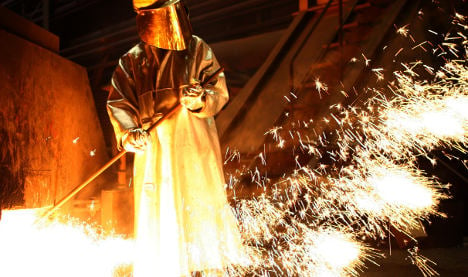But the CEO of Germany’s largest steel producer, Ekkehard Schulz, remained confident about the company’s future despite the massive restructuring.
“The effects of the crisis will be temporary. We will return to our long-term growth path,” he said.
“On September 30, 1999 the group had around 185,000 employees. At the end of the fiscal year on September 30, 2009, it was more than 187,000 … at the end of the current fiscal year Thyssenkrupp is … expected to have around 167,000 employees,” he said.
“All the key personnel measures were decided in agreement with the employee representatives after in some cases heated discussion,” Schulz added.
Earlier this month, the group announced that it had made a record loss of €2.36 billion ($3.5 billion) in its 2008/2009 fiscal year.
The firm, which manufactures elevators, submarines and yachts in addition to making steel, said that sales in the year to September 30 had plunged by 24 percent to €40.6 billion.
Battered by the global economic crisis, steel output in Germany is set to collapse by 30 percent this year to a level last seen in 1963, sector federation WVS said in November. Slumping demand in the sector has begun to stabilise, however.



 Please whitelist us to continue reading.
Please whitelist us to continue reading.
Member comments